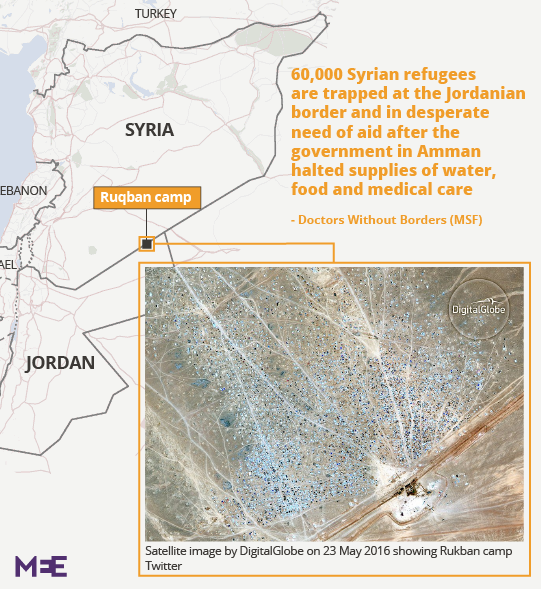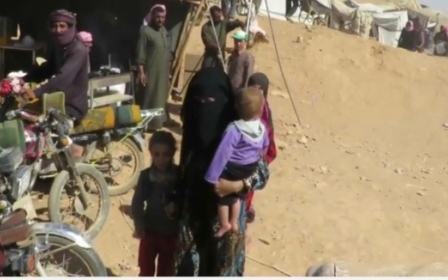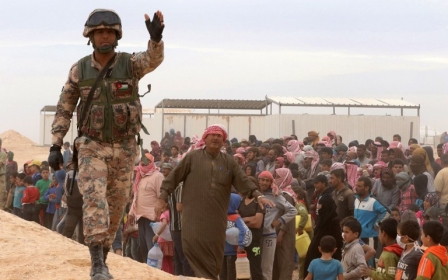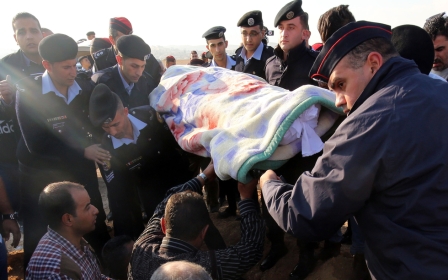MSF: 30,000 children 'in desperate need' at Syrian border after Jordan halts aid
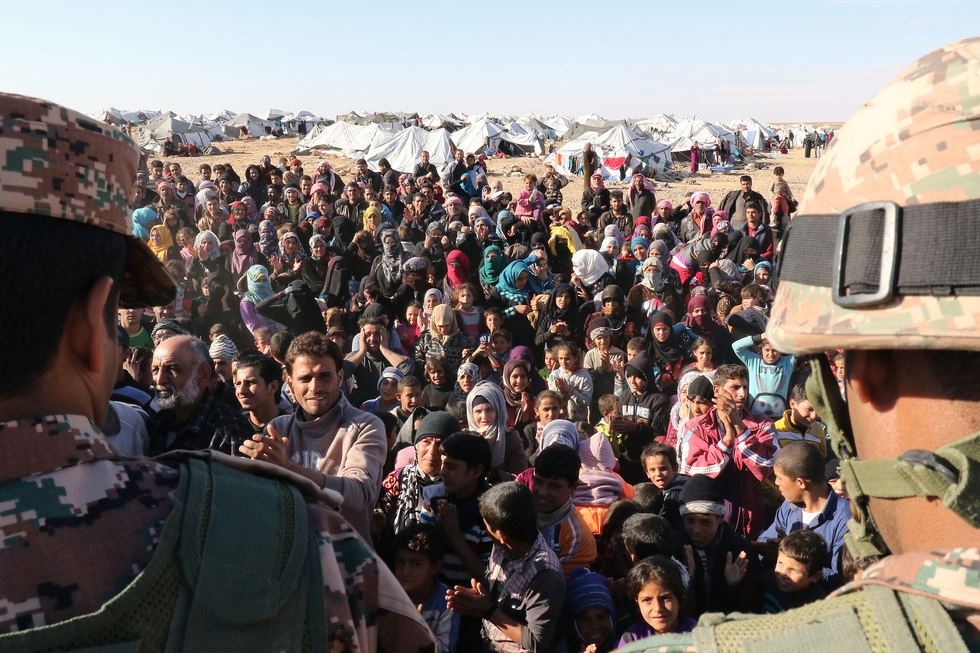
About 60,000 Syrian refugees, more than half of whom are children, are trapped near the Jordanian border and in desperate need of aid after the government in Amman halted supplies of water, food and medical care, Doctors Without Borders (MSF) said on Thursday.
Residents of the isolated Ruqban camp, in the Syrian desert on the frontier with Jordan, told MSF that the fighting within Syria had spread to the informal camp, and that they had become too scared to venture out and look for supplies.
“There are gun sounds at night – too many people have guns,” one resident, a 38-year-old woman, told MSF.
Backlogs of thousands of people began to build up in the area in 2014, when the Jordanian government closed all its land borders with Syria apart from Ruqban and another post 80km to the west.
However, the situation in Ruqban has approached a breaking point, MSF says, since the Jordanian government halted all aid activities in the camp last week.
The move was in response to a suicide attack that hit a nearby military outpost on 21 June, killing seven Jordanian soldiers and wounding 14 others.
MSF officials said that while conditions in the camp before the forced suspension of aid activities had been “extremely harsh,” staying at Ruqban was no longer a viable option.
“These people - more than 50 percent of whom are children - desperately need the immediate resumption of the provision of food, water and medical care. This cannot wait,” MSF’s operations manager Benoit de Gryse said.
Conditions at the desert camp have remained largely under the radar, as legal and security constraints mean the Jordanian military, aid agencies and journalists are prevented from directly accessing the area.
However, rare footage of the camp received by Middle East Eye – shot by a member of the Free Syrian Army who patrols the area – showed squalid conditions in the wind-racked tent city.
The footage shows that the camp, once a temporary informal settlement, is becoming increasingly built up, with more permanent structures being erected.
Jordanian officials have expressed suspicion over the presence of large numbers of Syrian refugees at their border, with a government spokesperson telling MEE that many of the camp's residents had "no convincing answer" as to why they were there.
Tensions - already high since King Abdullah in February said there were "IS elements" among the residents - increased after the IS-claimed attack last week.
A day after the attack, the Jordanian government declared all northern and northeastern border areas - including Ruqban - a "closed military zone," meaning that aid can no longer reach the region.
A week after aid was cut off, MSF on Thursday called for the international community to take more responsibility for the refugees at Ruqban, warning that staying in the camp was no longer a viable option.
“Assistance alone is not enough. People fleeing war should be offered international protection and a safe place to relocate. Neither Syria nor the border are safe today,” De Gryse said.
“This is a collective responsibility and a massive failure of the international community. This is not just Jordan’s responsibility. There are plenty of countries both in and outside of the region who should also step up to offer a safe place for refugees.”
Middle East Eye propose une couverture et une analyse indépendantes et incomparables du Moyen-Orient, de l’Afrique du Nord et d’autres régions du monde. Pour en savoir plus sur la reprise de ce contenu et les frais qui s’appliquent, veuillez remplir ce formulaire [en anglais]. Pour en savoir plus sur MEE, cliquez ici [en anglais].


